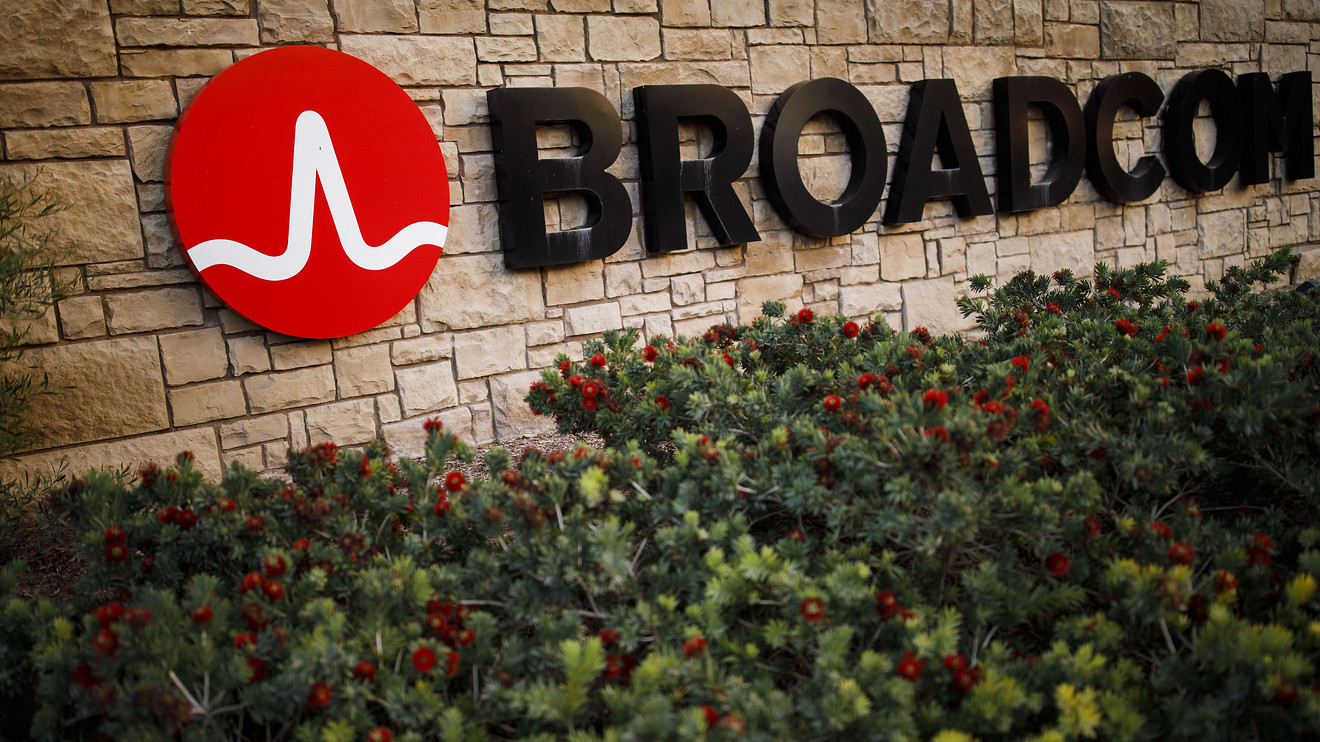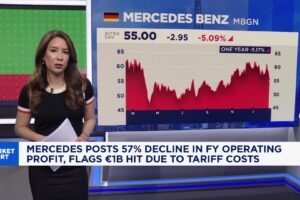
Tech conglomerate Broadcom Inc. pretty much wiped out remaining hopes for a substantial rebound in the semiconductor market this year, citing Thursday a combination of the sanctions on Huawei Technologies Co. and customers made jittery by trade concerns.
Broadcom AVGO, +0.67% lowered its guidance for the rest of the year while reporting second-quarter earnings Thursday afternoon. The San Jose, Calif.-based company said that it expects revenue for its semiconductor-solutions business, still its biggest revenue-generator, to fall about 10% for the full year amid export bans on large customer Huawei and ongoing trade tensions.
“In the second half, we had expected a recovery; however … with respect to semiconductors, it is clear that the U.S.-China trade conflict, including the Huawei export ban, is creating economic and political uncertainty and reducing visibility for our global [original equipment manufacturer] customers,” Broadcom Chief Executive Hock Tan told analysts on a conference call.
Broadcom was not the only company that had been predicting a stronger second half of the year. Nearly every chip maker has predicted at some point that revenue growth would return in the second half, though the target had already begun to slip with earlier second-quarter returns.
From March: The promise of a magical rebound for tech comes with little evidence to back it up
Broadcom’s results — which run through early May — show that the concerns elicited by other chip companies months ago have not abated, and in fact may have accelerated. Broadcom’s shares tumbled about 8% in after-hours trading, and most semiconductor stocks also took a hit in the after-hours market. The biggest after-hours declines in the S&P 500 index SPX, +0.41% on Thursday besides Broadcom were all chip makers, led by Qorvo Inc. QRVO, +0.84% , Skyworks Solutions Inc. SWKS, +0.95% , Advanced Micro Devices Inc. AMD, -2.45% , Xilinx Inc. XLNX, +0.38% , Texas Instruments Inc. TXN, +0.76% , Microchip Technology Inc. MCHP, +0.35% and Micron Technology Inc. MU, +1.27% , all of which were down 2% or more as the extended session neared a close.
Tan described skittish original equipment-maker customers afraid to place new orders in case they don’t use up their inventories, amid a backdrop of political uncertainty with no end in sight to the U.S.-China trade war. Analysts had predicted that the U.S. sanctions imposed on Chinese networking giant Huawei would hit Broadcom’s revenue, but the warning went well beyond that downfall. Tan told analysts that Huawei represented about $900 million in revenue last year, but he anticipates a $2 billion-plus semiconductor shortfall for the second half.
“Basically, compression of supply chain is what’s driving this reduction more than anything else, and it’s broad-based,” Tan said, when asked how much of its shortfall was Huawei versus other OEMs. Broadcom’s semi-solutions business — about three-quarters of Broadcom’s total sales — was down 10% in the quarter.
“We see a very, very sharp and rapid contraction of supply chain and orders out there from our customers, especially of global OEM customers,” Tan admitted.
The U.S. ban on Huawei was expected to result in a bit of a slowdown for chip companies. Bernstein Research analyst Stacy Ragson wrote in a recent note that a “Huawei-related downside is likely to become a theme for many semiconductor companies into the second half and beyond. (indeed, it may represent something of a free pass for companies to reduce expectations).”
But Tan’s admission that the second half looks weak well beyond Huawei is going to reverberate throughout the second half, which — as MarketWatch warned months ago — will not be the panacea chip companies suggested earlier this year. Those who are surprised have not been paying enough attention.










